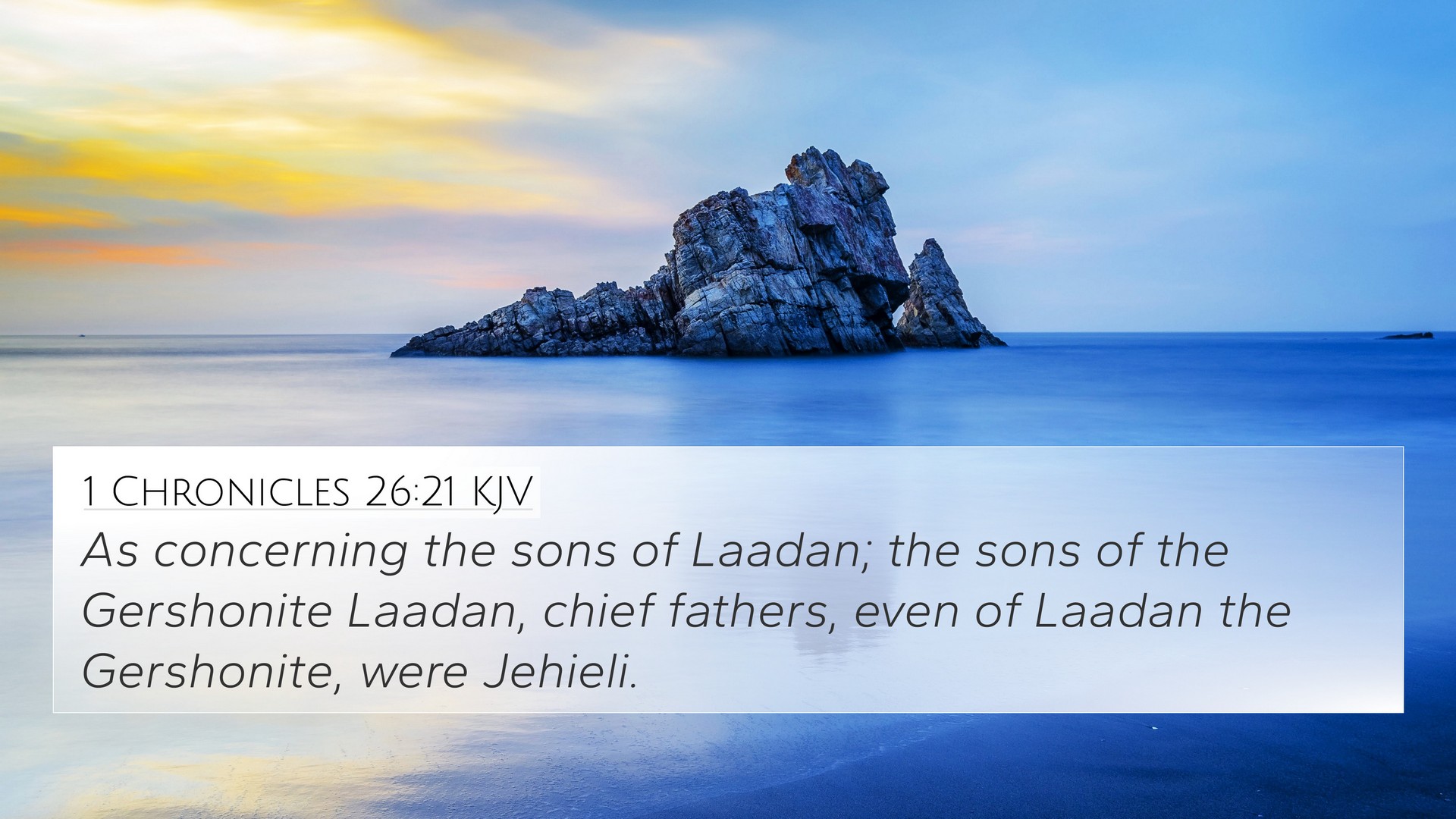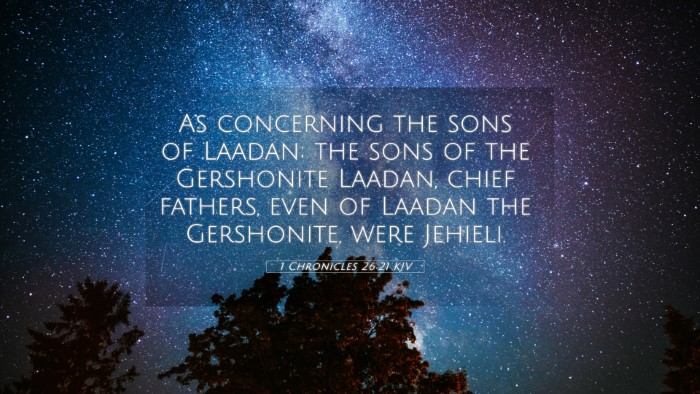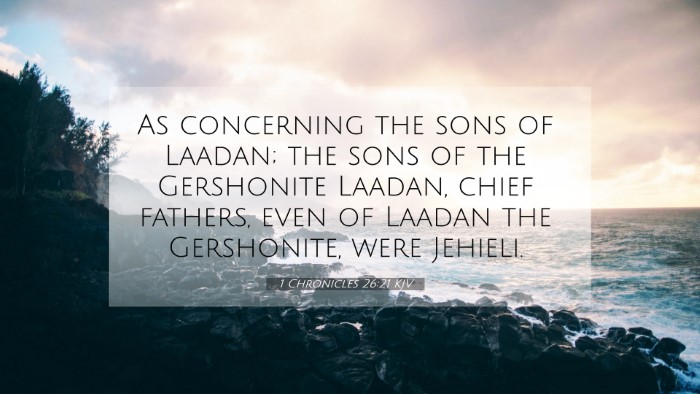Meaning and Interpretation of 1 Chronicles 26:21
Overview: 1 Chronicles 26:21 states, “As for the sons of Laadan; they were chief fathers of the Mershanites. The sons of Laadan were Jehieli.” This verse provides genealogical information about the Levites, specifically focusing on a branch of the Levitical families associated with the service of the Tabernacle.
Contextual Significance
The context of 1 Chronicles centers on the organization and duties of the Levites and priests, who were appointed to assist in temple worship. Understanding this structure is crucial for grasping the broader themes of service and order in Israel's worship.
Commentary Insights
-
Matthew Henry: Henry emphasizes the importance of acknowledging the heritage and roles of the Levites. This passage illustrates not only their lineage but also their responsibilities in guarding the temple and performing holy duties.
-
Albert Barnes: Barnes notes that this genealogy serves to uphold the continuity of priestly service, reinforcing God's established order through successive generations. This lineage indicates how God ensures His worship is conducted according to divine specifications.
-
Adam Clarke: Clarke expands on the significance of Laadan's descendants, highlighting their specific contributions to temple life. He points out that even seemingly minor details serve as reminders of God’s careful orchestration of worship practices.
Thematic Connections
This verse, while brief, connects with larger themes within Scripture regarding leadership, service, and the sanctity of worship. It's essential to explore how various parts of the Bible weave together to flesh out these ideas.
Cross-References
1 Chronicles 26:21 has several noteworthy connections to the biblical narrative:
- Exodus 6:21: Lists the sons of Gershon, correlating with the Levitical divisions.
- Numbers 4:24-28: Discusses the duties of the Merarites, contributing to the understanding of the Levitical service.
- 1 Chronicles 23:6-24: Provides a broader context of the Levitical families and their assignments.
- Hebrews 7:14: Mentions the priestly lineage of Christ, connecting Old Testament practices with New Testament fulfillment.
- 2 Chronicles 35:3: Illustrates the duties of the Levites during the Passover, showcasing their ongoing role in worship.
- Micah 6:4: References God’s provision of leaders from the tribe of Levi, further affirming their significance.
- Luke 2:36: Indicates Anna the prophetess as a daughter of Phanuel, from the tribe of Asher, emphasizing God’s continued work through devoted individuals.
Cross-Referencing Biblical Texts
Understanding cross-references enhances our comprehension of the Scriptures. Tools for Bible cross-referencing, like Bible concordances and cross-reference guides, are essential for deeper study.
Exploring Cross-Referencing
Learning how to use Bible cross-references can elucidate themes and connections among chapters and verses, enriching our Bible study experience. Here are methods to consider:
- Bible Chain References: Follow thematic links through various books of the Bible.
- Comparative Bible Verse Analysis: Analyze similar verses across multiple books to see how they relate.
- Inter-Biblical Dialogue: Engage with how different biblical authors speak to similar themes or events.
Practical Application
1 Chronicles 26:21 invites readers to appreciate the structure of worship and recognize the importance of individual and communal roles in service to God. Understanding these connections encourages believers to reflect on their contributions within the church and their walk of faith.
In Summary: The verse not only communicates genealogical information but serves as a reminder of God’s order in worship, our roles as part of the Body of Christ, and the significance of cross-referencing both Old and New Testament texts. Effective use of Bible reference resources provides a richer understanding of Scripture and nurtures our relationship with God and the community of believers.





